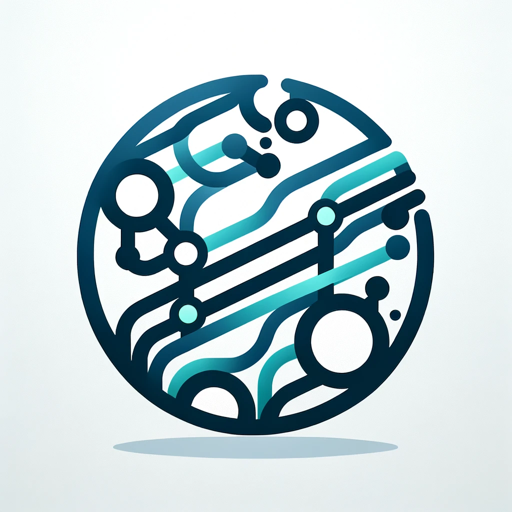The Beginning of Infinity GPT-AI-based discussion of philosophy.
Explore David Deutsch’s ideas with AI-powered insights.
What is the main theme of 'The Beginning of Infinity'?
Can you explain Deutsch's concept of 'explanation'?
How does Deutsch relate science and optimism?
Discuss the role of problems in Deutsch's philosophy.
Related Tools
Load More
GPT Idea Evaluator
Pitch me your GPT idea, and I'll rate it out of 10.

Correct English GPT
Write English like a native speaker. Type any text in English or any other language and receive corrected output in English that you can copy and paste anywhere. To improve the style of the corrected text, send "s"

History GPT
Ask me the history of anything!

Inception GPT | Custom GPT Maker | Custom GPT
I create prompts so you can build your own custom GPT AI chat tool with advanced machine learning and self improving models. Your Custom GPT Maker is the ultimate inception tool to make your own custom GPT for any AI powered business. Your Chat GPT AI gam

Research GPT
Conducts expert research on any given topic.

GPT Idea Roller
Sparking joy with AI brainwaves!
20.0 / 5 (200 votes)
Introduction to The Beginning of Infinity GPT
The Beginning of Infinity GPT is designed as a specialized tool to explore and analyze the themes, ideas, and implications presented in David Deutsch's book 'The Beginning of Infinity.' This AI is optimized to delve deeply into the philosophical and scientific concepts introduced in the book, providing users with a thorough understanding of its key themes, such as the nature of knowledge, the process of scientific discovery, and the concept of infinite progress. For example, if a user is puzzled by Deutsch's critique of empiricism, The Beginning of Infinity GPT can clarify this concept by providing both a detailed explanation and relevant examples from the text. The primary purpose of this GPT is to facilitate intellectual exploration and discussion surrounding the ideas presented in the book, ensuring that users gain a comprehensive understanding.

Main Functions of The Beginning of Infinity GPT
In-depth Explanations of Concepts
Example
A user might ask for a detailed explanation of the concept of 'good explanations' as discussed in the book. The GPT would then break down the idea, explaining how good explanations are those that are hard to vary without losing their explanatory power.
Scenario
This function is useful for readers who encounter complex ideas in the text and need clarification. For instance, if a reader struggles to understand why Deutsch criticizes induction, the GPT can provide a clear and detailed explanation, helping the user grasp the philosophical underpinnings.
Chapter and Theme Analysis
Example
A user might request an analysis of Chapter 6, 'The Jump to Universality.' The GPT would offer a summary of the chapter’s main points, discuss its implications, and link it to other themes in the book.
Scenario
This function is ideal for users who are reading the book chapter by chapter and want a deeper understanding of how each part contributes to the overall argument. It’s especially helpful for students or book clubs engaging in a group discussion.
Philosophical Discussion and Debate
Example
If a user questions whether the concept of 'infinity' in the book is purely mathematical or also philosophical, the GPT can engage in a discussion that explores both perspectives, offering evidence from the text.
Scenario
This function supports users interested in philosophical debates, enabling them to engage with the material on a deeper level. It can simulate a Socratic dialogue, encouraging critical thinking and reflection on the book's themes.
Ideal Users of The Beginning of Infinity GPT
Philosophy and Science Enthusiasts
This group includes individuals who have a keen interest in philosophy, particularly epistemology, and the philosophy of science. They would benefit from using The Beginning of Infinity GPT to explore Deutsch's ideas, such as the nature of knowledge, the scientific method, and the concept of progress. These users are likely to appreciate the depth of discussion and analysis that the GPT provides, allowing them to engage with the material in a meaningful way.
Students and Academics
Students and academics studying philosophy, science, or related fields are another target group. They would find the GPT useful for clarifying complex concepts, analyzing themes, and preparing for exams or writing papers. By providing detailed explanations and critical analysis, the GPT helps these users grasp the nuances of Deutsch's arguments, making it a valuable tool for both learning and teaching.

How to use The Beginning of Infinity GPT
Visit aichatonline.org for a free trial without login, no need for ChatGPT Plus.
Begin by visiting the aichatonline.org website to access the tool for free, without requiring login credentials or premium subscriptions.
Familiarize yourself with David Deutsch's book 'The Beginning of Infinity'.
Having a basic understanding or having read the book 'The Beginning of Infinity' by David Deutsch enhances your ability to explore themes and insights more deeply using the GPT.
Ask detailed and specific questions related to the book’s themes.
The GPT works best when you ask focused questions about chapters, philosophical implications, or specific ideas from the book. Broad queries may yield general responses.
Use the GPT to explore related philosophical topics.
You can expand the conversation to topics such as the nature of knowledge, fallibilism, or the scientific method—themes deeply explored by Deutsch.
Iterate and clarify for deeper understanding.
Ask follow-up questions or request clarification to further your understanding of complex concepts. This interaction deepens your grasp of the book’s ideas.
Try other advanced and practical GPTs
Yellowpages Navigator - Find Local Businesses Info
AI-powered tool to find local businesses effortlessly.

SEO Advisor
Optimize Your Website with AI-Powered SEO Insights

Jarvis
AI-driven tool for smart solutions

Unit Test Buddy
Enhance Your Code with AI-Driven Tests

Personal Finance
AI-powered personal finance guidance

Quiz Master
AI-powered quizzes for learning and fun.

Content Press
AI-Powered Blog Post Creation and Publishing

ChatOffer求职教练
AI-powered career guidance for everyone

Data Science Interview
Master data science interviews with AI-powered practice.

GTP search
Your AI-powered information hub

AI News Curator
AI-powered news, curated for you

鲁迅说
Transform your text with Lu Xun's sharp insights.

- Research
- Education
- Philosophy
- Science
- Epistemology
Q&A about The Beginning of Infinity GPT
What is The Beginning of Infinity GPT?
The Beginning of Infinity GPT is an AI tool designed to explore and explain the concepts from David Deutsch's book, 'The Beginning of Infinity'. It provides insights into topics like the nature of knowledge, scientific progress, and philosophical implications, making it an excellent companion for readers and thinkers alike.
How can this tool enhance my understanding of the book?
This tool offers detailed explanations and discussions of specific themes from 'The Beginning of Infinity'. Whether you're curious about the concept of 'good explanations' or the philosophical stance on fallibilism, the GPT can provide rich, thoughtful insights based on the book’s content.
Can I use this tool for academic research?
Yes, the tool is ideal for academic purposes. It provides in-depth analysis and clarification of complex themes, making it valuable for research on topics like epistemology, science, and philosophy. It’s especially useful for exploring David Deutsch’s unique perspectives.
Is prior knowledge of the book necessary?
While prior knowledge of the book helps, it’s not strictly necessary. The GPT can offer explanations on specific topics even if you haven't read 'The Beginning of Infinity'. However, having a basic understanding can significantly enrich the interaction.
What are the key philosophical themes this GPT can explain?
This GPT covers themes such as fallibilism, the nature of scientific progress, optimism, the concept of the multiverse, and the philosophy of knowledge. It delves into how these ideas are interconnected within Deutsch’s framework of 'good explanations'.